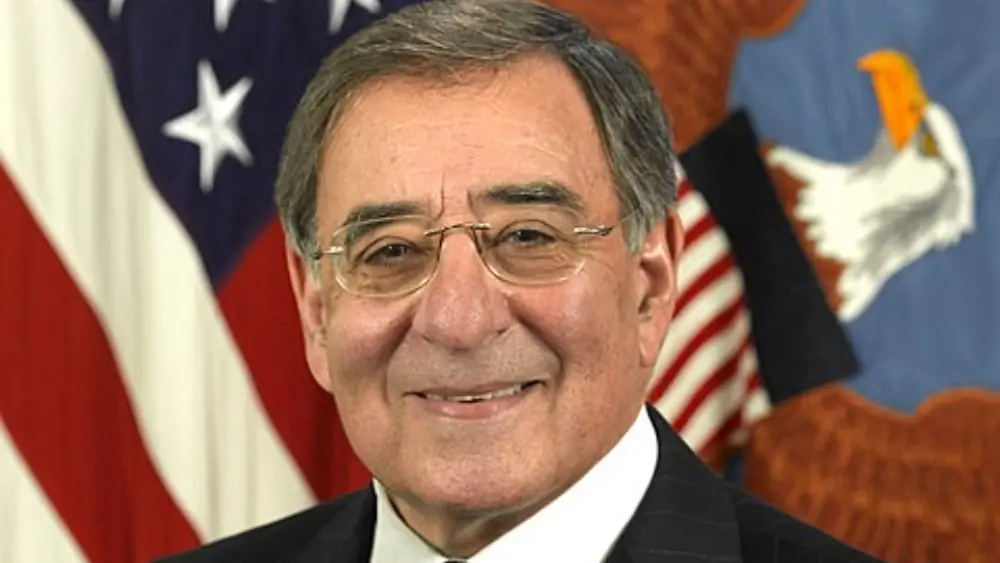Leon Panetta, a seasoned statesman, served as the CIA Director during a critical period in American history as a public servant. Born on June 28, 1938, in Monterey, California, Panetta’s career spanned decades, encompassing roles in government, law, and public service.
Early Life and Education
Leon Panetta’s upbringing by Italian immigrant parents instilled values of hard work, education, and civic duty in his early life. Raised in a family valuing these principles, Panetta developed a strong appreciation for America’s opportunities, driving him throughout life. He studied political science at Santa Clara University, setting the stage for a career dedicated to public service and leadership.
At Santa Clara, Panetta sharpened his intellect and began forming his political understanding, shaping his future career path. Furthermore, he recognized the role he could play in shaping the nation’s future. His education laid the foundation for a remarkable career marked by a tireless commitment to public service, leadership, and the American dream.
Leon Panetta: Legal Career and Entry into Politics
Leon Panetta’s legal career led to a life of public service, driven by his passion for community impact and change. He briefly practiced law but was drawn to politics, aiming to effect change through public policy and meaningful engagement. Desire led him to pivot to politics, pursuing a career to better the United States.
In politics, Panetta’s talent and dedication shone through as legislative assistant and chief of staff to U.S. senators. These roles granted vital experience, fostering enduring influence in American politics with a deep grasp of government. Leon Panetta’s journey from law to politics highlighted his unwavering commitment to public service, determined to make a difference.
Director of the Office of Management and Budget
Leon Panetta’s fiscal expertise led to a key role as OMB Director under President Bill Clinton, shaping federal budget policies. In this vital role, Panetta managed the nation’s budget and financial policies, demanding sharp financial skills and political finesse. At OMB, Panetta crucially helped balance the federal budget, a historic milestone in U.S. fiscal policy previously unattained by others.
Panetta’s leadership and dedication to sound financial management were instrumental in steering the nation toward fiscal responsibility. His budget negotiation skills and consensus-building showcased his pragmatic and results-oriented approach as a public servant. Panetta’s OMB directorship stands as a prime example of effective government leadership in fiscal policy.
Leon Panetta: CIA Director Appointment
In 2009, President Obama appointed Leon Panetta as CIA Director, a significant move in the intelligence community. This marked a pivotal moment in U.S. national security and intelligence, as Panetta oversaw intelligence operations amid global challenges. Panetta’s government experience, policy acumen, and pragmatic leadership made him ideal to lead the CIA’s international intelligence operations.
As CIA Director, Panetta improved agency capabilities and leveraged intelligence to protect national interests during his tenure. In this role, his transparent, accountable leadership boosted U.S. intelligence effectiveness and bolstered national security. Obama’s appointment of Panetta as CIA Director demonstrated trust in his expertise, shaping American intelligence during a crucial period.
Challenges in Intelligence
Leon Panetta’s CIA directorship was marked by multifaceted, evolving challenges in intelligence and national security during his tenure. One of the foremost challenges he confronted was the ongoing battle against terrorism, where the CIA played a central role in gathering intelligence, tracking terrorist networks, and thwarting potential threats. Panetta’s leadership was crucial in ensuring that the intelligence community remained agile and responsive to terrorist organizations’ evolving tactics and strategies.
In addition to counterterrorism efforts, Panetta grappled with the emerging challenges of the cyber age, as cybersecurity concerns rose to the forefront of national security considerations. He recognized the growing threat posed by cyberattacks and worked to bolster the nation’s defenses while also improving its capabilities for cyber espionage and counterintelligence. Panetta’s tenure also coincided with a complex web of global intelligence challenges, including the rise of new regional powers, geopolitical shifts, and ongoing conflicts. His ability to navigate these multifaceted challenges and provide strategic leadership to the intelligence community demonstrated his resilience and commitment to safeguarding the nation’s interests in an ever-changing world.
Leon Panetta: Enhancing Counterterrorism
Leon Panetta’s tenure as Director of the Central Intelligence Agency (CIA) witnessed a determined and intensified focus on combating terrorism, resulting in a series of significant successes in dismantling terrorist networks. Panetta recognized the gravity of the terrorist threat and mobilized the CIA’s vast resources and expertise to confront it head-on. Under his leadership, the agency adopted a multifaceted approach that combined intelligence gathering, covert operations, and international collaboration to target terrorist leaders and disrupt their operations.
Panetta’s strategic leadership played a pivotal role in several high-profile operations, including the successful operation to eliminate Osama bin Laden, the mastermind behind the 9/11 attacks. These achievements underscored the CIA’s effectiveness in counterterrorism efforts under Panetta’s guidance and demonstrated the nation’s unwavering commitment to confronting terrorism wherever it posed a threat. Leon Panetta’s legacy as CIA Director is defined by his unwavering commitment to strengthening counterterrorism efforts, making America safer and highlighting the critical role of intelligence and covert operations in modern national security.
Global Intelligence and Covert Operations
As Director of the Central Intelligence Agency (CIA), Leon Panetta significantly expanded global intelligence gathering and covert operations, all aimed at safeguarding U.S. national security interests. Recognizing the increasingly interconnected and complex nature of global threats, Panetta oversaw efforts to enhance the CIA’s capabilities for collecting critical intelligence from around the world. These efforts involved a combination of human intelligence, signals intelligence, and other advanced methods, all aimed at providing a comprehensive understanding of evolving threats to the United States.
In parallel, Panetta presided over a robust and diverse portfolio of covert operations designed to protect U.S. interests and disrupt the activities of hostile actors. These operations encompassed a wide range of activities, from counterterrorism missions to cyber espionage efforts. Under Panetta’s strategic guidance, the CIA demonstrated its adaptability and resourcefulness in the face of evolving challenges, ensuring that the United States remained at the forefront of global intelligence and covert operations. His tenure underscored the vital role of intelligence agencies in an increasingly complex and interconnected world, where information and covert actions are pivotal in securing national interests and preventing threats to security.
Leon Panetta: Transition to Secretary of Defense
After the CIA, Leon Panetta smoothly assumed the critical role of Secretary of Defense in the national security domain. In a crucial role, Panetta tackled complex national security issues, showcasing exceptional leadership and strategic skills. His government experience and adeptness in handling security challenges made him the obvious choice for this crucial role.
As Secretary of Defense, Panetta managed the U.S. military, defense policy, and military operations. He faced challenges like troop drawdown in Iraq and Afghanistan, cyber threats, and Asia-Pacific issues. Panetta dedicated himself to U.S. safety, reflecting lifelong public service and commitment to safeguarding the nation’s interests and allies.

Legacy and Contributions
Leon Panetta’s transformative leadership at the CIA had a lasting impact on intelligence and national security during his tenure. His CIA leadership drove advancements in intelligence, analysis, and covert ops, leading to crucial anti-terrorism successes. His dedication to bolstering U.S. intelligence and safeguarding against threats resonates as a testament to his exceptional leadership.
Panetta’s contributions to national security extend beyond his time at the CIA. Additionally, his subsequent role as Secretary of Defense further demonstrated his ability to grapple with complex security challenges. Moreover, as a result, he made decisions that protected American interests. His enduring legacy shines as a beacon of leadership, strategic vision, and unwavering commitment to U.S. safety and security. Leon Panetta’s contributions to intelligence and defense resonate as a source of inspiration and guidance for safeguarding the nation’s security.










